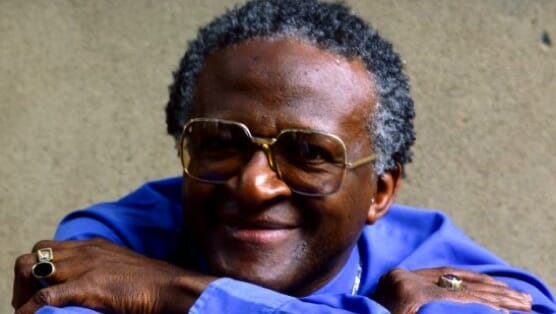Children of the Light

Two years ago, the Jackie Robinson biopic 42 was released, and Chadwick Boseman turned in a strong performance as the first African-American athlete to desegregate baseball. Although director Brian Helgeland succeeded in making a great baseball movie, he never quite captured the true legacy of Robinson. Two years later, that legacy—and the notion of legacy itself—is somehow better expressed in a documentary on the life, times, and struggles of Archbishop Desmond Tutu. In one of the opening scenes from Children of the Light, Tutu reflects back to his childhood, and names Jackie Robinson as one of his first heroes. In the baseball giant, he saw that there was hope for change and progress for blacks—even in the very places where they had been discriminated against, among the very people who had beaten them down. In this opening and throughout the film, Children of the Light makes powerful connections between the legacies left by predominantly peaceful revolts from people of color the world over, with the Bishop at the center—a man informed and inspired by his past, even as he evolved into an icon that would inform and inspire South African politics, and the world.
In addition to Robinson, and other African Americans who broke down huge racial barriers, director Dawn Engle also focuses on the work of Trevor Huddleston, which had a direct influence on young Tutu. Tutu speaks on the hope, love, and kindness bestowed upon him by this white, British bishop, who visited him when he was in hospital, and also fought against apartheid. Such love became a foundation for the Bishop’s work, as he grew up to become an activist and a voice for the oppressed.
Even while recounting the horrors of apartheid, and the anti-apartheid movement—even while speaking on the prime minister and politicians, and police officers who were responsible for the deaths of hundreds of thousands of peaceful protestors in South Africa and abroad—the Archbishop remains steadfast in his belief of good, over evil. The documentary positions Tutu as an activist who saw and experienced true horrors in the fight for the rights of black South Africans, and still believed in a non-violent approach because of his love for humanity over one group, or one individual. However, there is also footage that make such beliefs difficult to entertain, or even understand.
Children of the Light takes us through disturbing images and video from the 1976 Soweto massacre, and the post-apartheid Truth and Reconciliation trials, in an attempt to tell the full story of Tutu’s political life. That he received the Nobel Peace Prize in 1984, but voted for the first time in a free and fair, all-race election in 1994 speaks volumes about the fight to take down the very political system he had grown up under.
-

-

-

-

-

-

-

-

-

-

-

-

-

-

-

-

-

-

-

-

-

-

-

-

-

-

-

-

-

-

-

-

-

-

-

-

-

-

-

-








































